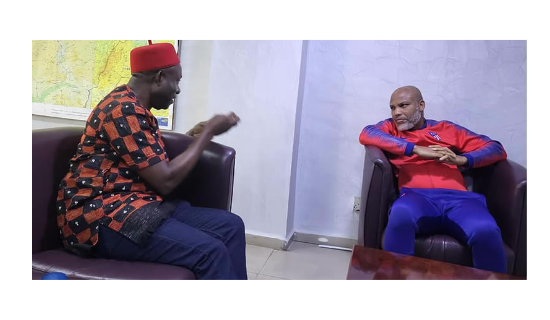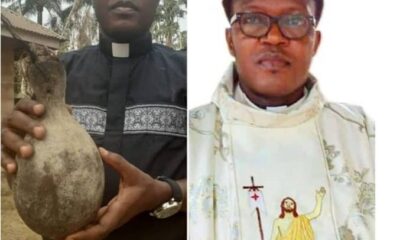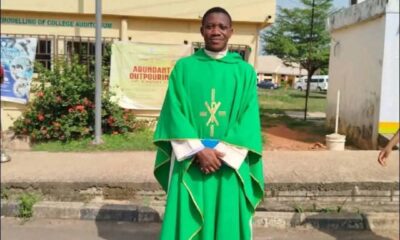Inside Nigeria
Why releasing Nnamdi Kanu may not solve insecurity issues in Southeast – Soludo

Anambra State Governor, Prof. Chukwuma Soludo, has expressed doubts that releasing Nnamdi Kanu, the detained leader of the Indigenous People of Biafra (IPOB), would resolve the growing insecurity in the South-East.
During a press briefing at the Governor’s Lodge in Amawbia on Tuesday, Soludo argued that the Biafran struggle has been hijacked by criminals exploiting Kanu’s name to engage in organized crime and perpetuate insecurity. He emphasized that under the guise of agitation, some individuals have turned to “lucrative criminality,” involving armed robbery, kidnapping, cultism, and idolatry.
“These activities have nothing to do with the genuine liberation struggle,” Soludo remarked, asserting that greed and lawlessness, not ideology, drive these crimes.
The governor also revealed alarming statistics, stating that over 99% of criminals arrested in Anambra over the past two years were of Igbo origin, with more than 70% of them being non-indigenes of the state.
“The so-called agitators have transformed into organised criminal gangs,” Soludo said. “They hide in forests, kidnapping innocent citizens for ransom, and they justify their atrocities under the pretext of Biafra. Let us be clear—this has nothing to do with any liberation movement. Criminality has taken on a life of its own. These people have tasted blood, and now, money is their motivation.”
The governor expressed doubt that the release of the detained IPOB leader, Nnamdi Kanu, would end the crisis, as the criminals appear to have severed ties with the original agitation.
“Kanu and IPOB have repeatedly dissociated themselves from these criminals,” Soludo explained. “Even if Nnamdi Kanu is released today, I’m not sure they would listen to him because what they now pursue is wealth, not liberation. They have become enemies of the people they claim to protect. Who are they fighting for when they kidnap and kill their own people?”
Soludo further decried the complicity of some communities in shielding these criminals, adding that insecurity in the region was sustained because some locals viewed security agencies as adversaries and the criminals as liberators.
“Our people know these criminals. They are our brothers, cousins, and neighbors,” he said. “It’s unfortunate that in some communities, people contribute food to sustain these criminals hiding in the forests. How do you fight insecurity when people see criminals as heroes and the police as the enemy?”
The governor announced the plan to launch ‘Operation Udo Ga Chi’ (Operation Peace Shall Reign), a state-wide security initiative scheduled to commence after January 25.
The operation, Soludo said, would deploy 163 branded vehicles for stop-and-search activities and integrate advanced surveillance technology to track criminals and secure forests.
“We are intensifying our security measures with both kinetic and non-kinetic approaches. We have trained forest guards to work with vigilantes and LG authorities to reclaim our forests. I call on these criminals to embrace our amnesty window, which remains open until the end of February,” Soludo added.
Calling for collective action, Soludo urged religious leaders, traditional rulers, and residents to take ownership of their communities and cooperate with security agencies.
“Insecurity is a monster that must be confronted collectively,” the governor emphasized. “If you see something, say something. Anambra will no longer be a haven for criminals masquerading as freedom fighters.”
He expressed gratitude to the Federal Government and security agencies for their support, reiterating his administration’s resolve to rid the state of criminal elements and ensure lasting peace and security.





























